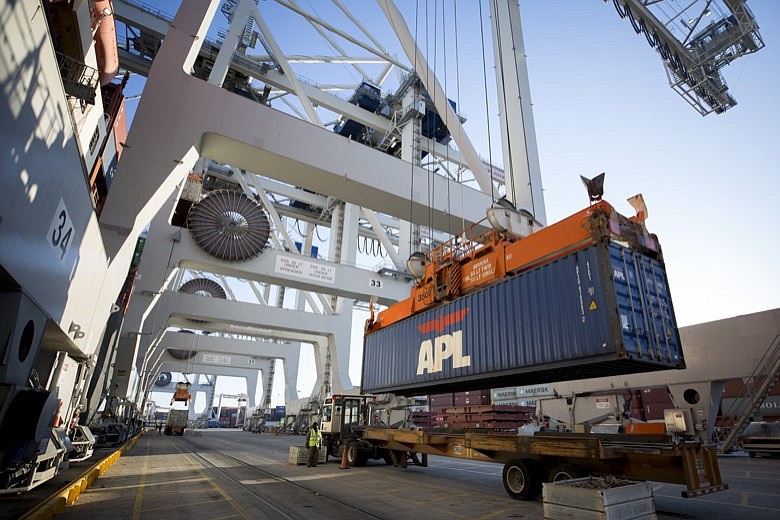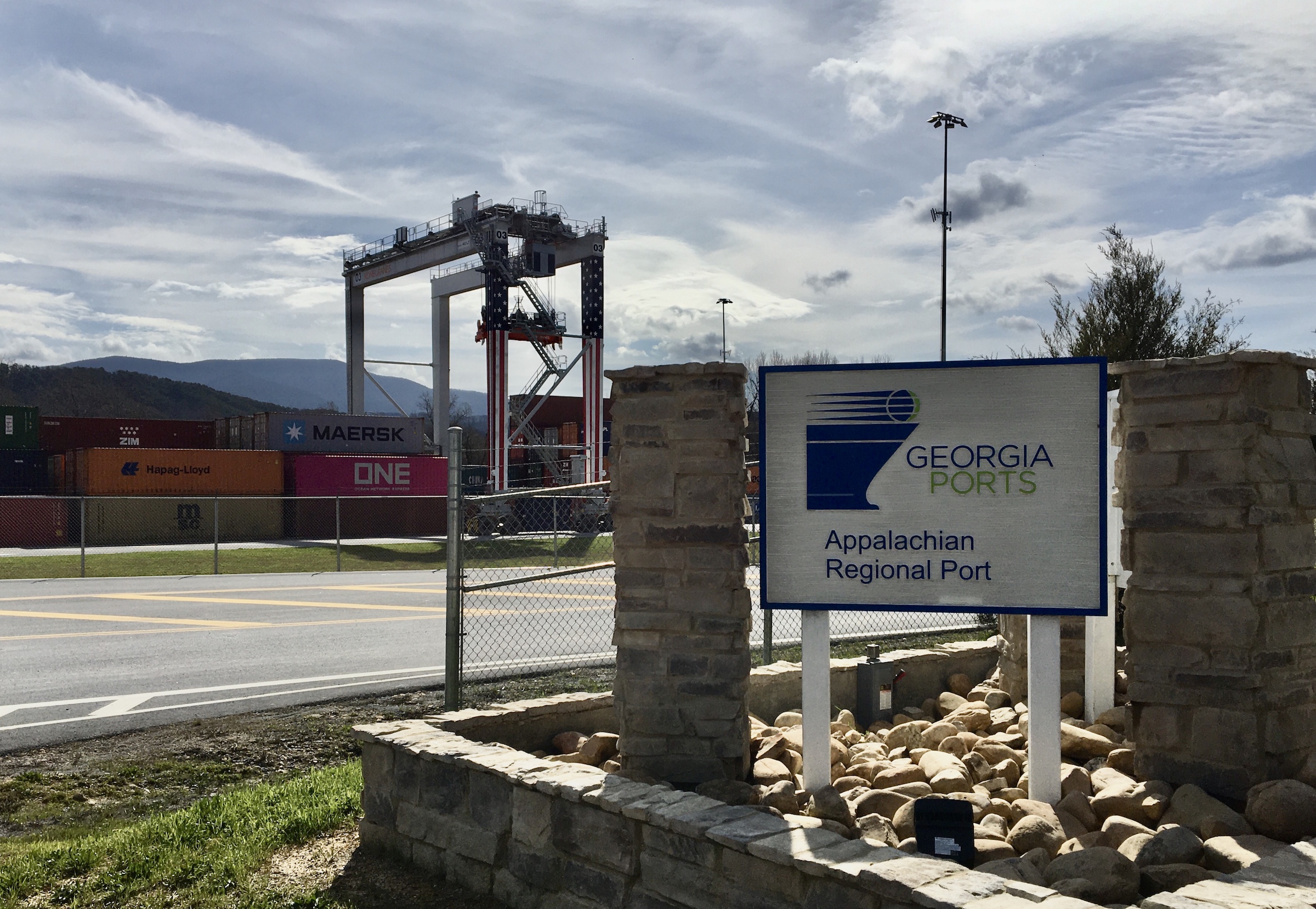America's fastest growing port is likely to take a hit this month from reduced shipments from Asia due to the coronavirus.
But Georgia Ports Authority Director Griff Lynch still expects the Port of Savannah in Georgia will gain in its usage and shipments over time as a quicker turnaround port in the Southeast than the biggest U.S. ports on the West Coast or Northeast.
"The (Savannah) port has been doing great and is on a record year pace," GPA Executive Director Griff Lynch Monday during a visit to one of the port's newest users, GE Appliances' Southern Logistics Center in Crandall, Georgia. "But March is going to be a slow month and slower than we budgeted. We are looking at three or four weeks of a trough. During the time that China was having its challenges (from the Coronavirus and the extension of the Chinese New Year's holiday) they weren't loading a lot of cargo."
Lynch said he hopes that April activity at the port will be back in line with projections, although he concedes "it's still too early to know for sure" how much business may be limited by the coronavirus keeping workers away from Asian plants and cutting production of U.S.-bound parts and supplies.
"We can see out four weeks on the water and we see now that shipments are coming back and we feel good about that," Lynch said. "All of our contacts in China and throughout Asia tell us they are ramping up again and cargo is moving."
The coronavirus-related cutbacks in Savannah are likely to limit some shipments to the Appalachian Regional Port which the Port Authority erected along a CSX rail line in Northwest Murray County and opened in 2018.
"But this is a new facility that is still growing and we anticipate it will be up significantly," Lynch said. "Rail is a big part of our business and we're exited that Volkswagen and other companies have started using this facility as well."
Will McKnight, a veteran construction contractor who is chairman of the board for the Georgia Port Authority, conceded it was surprised and skeptical when the mountainous Murray County site was proposed as "an inland port" to unload rail shipments unloaded from ships coming to the Savannah port.
"We were told "built it and they will come" and that's exactly what has happened," McKnight said. "Today the ARP (Appalachian Regional Port) is averaging over 2,000 container moves a month."
Last month, more than 2,500 containers moved through the ARP, triple the year-ago level.
"We can get a container on a rail car within 24 hours, which is unheard of in most ports," McKnight said. "We're trying to make it so that containers can come in faster."
That has not only helped boost Georgia industry, but it has helped reduce an estimated 17.5 million miles of truck use on the highway.
The Savannah Port unloaded more than 500,000 containers last year "and it continues to grow." Savannah is already the third biggest U.S. port, behind only Long Beach port in Los Angeles, the New York and New Jersey Ports, and handles nearly 10% of all U.S. containerized exports.
The $5.25 billion expansion of the Panama Canal in 2016 has allowed faster and easier Asian shipments to the Eastern half of the United States through the Savannah port.
Georgia's deepwater ports and inland barge terminals support more than 439,000 jobs throughout the state annually and contribute $25 billion in income, according to GPA estimates.
Contact Dave Flessner at dflessner@timesfreepress.com or at 423-757-6340.

